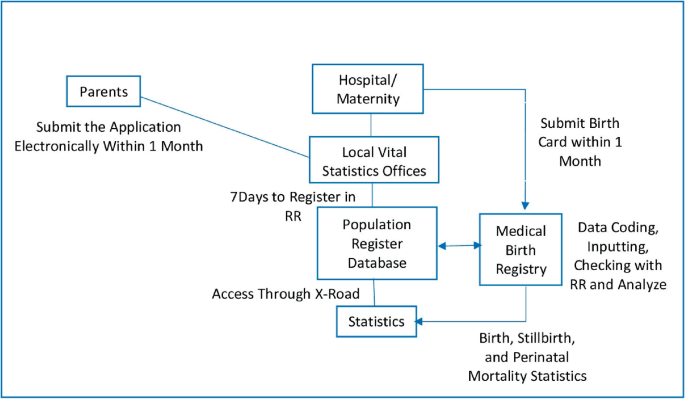India Pushes for Timely Registration of Births, Deaths
Why in News ?
The Registrar General of India (RGI) urged hospitals to strictly register births and deaths within 21 days, after finding that 10% go unregistered. Digital registration has been mandatory since October 2023 for official use like education, jobs, and documentation.
Recent RGI Circular and Legal Framework:
- On March 17, the RGI directed hospitals to report births and deaths within 21 days.
- About 10% of such events still go unregistered despite progress.
- Under the Registration of Births and Deaths Act, 1969 (amended 2023), registration is compulsory.
- Failure to register invites fines, raised from ₹50 to ₹1,000 post-2023 amendment.
Registration Responsibility and Digital Shift
- Government hospitals act as registrars under the Civil Registration System (CRS).
- Private hospitals must report cases to the registrar; they cannot issue certificates independently.
- Since October 1, 2023, digital birth certificates are the only valid proof for services like admissions, jobs, marriage, property registration, and electoral rolls.
Vital Statistics Report and Other Concerns
- The Vital Statistics Report—vital for health and policy planning—hasn’t been released since 2020.
- RGI criticized hospitals for delaying registration until families request it.
- Several states haven’t updated reports; Mizoram is the only one to release the 2023 report.
- Accurate data feeds into the National Population Register (NPR) and other public services.
About Civil Registration System (CRS) App :● The Civil Registration System (CRS) App was developed by the Registrar General and Census Commissioner of India under the Ministry of Home Affairs. ● It aims to speed up birth and death registrations nationwide. ● As per the Registration of Births and Deaths (Amendment) Act, 2023, all births and deaths from October 1, 2023, must be digitally registered. ● Digital birth certificates are now mandatory for services like education, jobs, marriage, and property registration. ● The centralized database also updates the National Population Register (NPR), ration cards, and electoral rolls. ● NPR is the base for the National Register of Citizens (NRC). |




